On July 5, Kyaikmayaw township National League for Democracy (NLD) news and information team member and also NLD Kyonekwe village general secretary Saw Kaung Myat, who used to be Karen National Union’s (KNU) Kyonedoe township chairman, was arrested by KNU 6 brigade troops on unclear charges at Kyonekwe village.

Speculation is that he was said to be disliked by many Karens as he misused his power and is corrupted and indulged in bullying during his tenure as KNU chairman Kyonedoe township, and it could be sort of vendetta from his enemies, according to Tun Tun Oo, NLD head of news and information team in Kyaikmayaw.
He reportedly resigned from the KNU before becoming NLD member in 2018 and in 2019 become Kyaikmayaw township news and information team member said Tun Tun Oo.
He was arrested with the warrant issued by KNU in August last year said the Karen sources. The arrest took place in front of the Karen Border Guard Force and Tatmadaw, also known as the military or Myanmar Army, said Tun Tun Oo.
“As the arrest happened in front of the military without being protected we will have to do a lot regarding rule of law,” he told The Irrawaddy with dissatisfaction.
Earlier Saw Kaung Myat was said to have written appeals dated May 24 to the president, ministry of defense office, including some 20 departments to resolve the land ownership dispute between his family and two villagers from Kyonekwe village.
He was said to be arrested shortly after clarification of his case to a team which Tatmadaw officers and township land and registration department were included at Kyonekwe village monastery, according to the eye witnesses.
While the arrest of Saw Kaung Myat is still unclear, in the case of land ownership dispute, he is said to own documents of his ownership or land use rights issued by the government and the two Kyonekwe villagers also have documents of ownership issued by the KNU.
And as the row happened within Mon state, Dr Aye Zan the chief minister told the media: “(NLD) party will do the party job and the government will also do government’s duty.”
This means that Mon state security and border affairs minister colonel Nay Htut Oo will come into play in the future, although at this writing it is still unclear.
Government’s spokesman Zaw Htay on July 9 on the sideline with government’s National Reconciliation and Peace Center (NRPC) meeting in Yangon with the KNU said: “The main thing is if one side breach the rules and regulations there are mechanism to resolve the problem such as Union-level Joint Monitoring Committee (JMCU) and State-level Joint Monitoring Committee (JMCS). But as they are temporary stopped the government and KNU will have to directly contact each other.”

Background
The Ethnic Armed Organizations (EAOs) of Kachin, Shan, Karen, Karenni and Mon having administration of their own under their armed forces is a known fact and realities. And land department is just one of the administrative branch of the EAOs aside from education, judiciary, taxation and so on. In other words, these are going parallel with those of the government.
And the Nationwide Ceasefire Agreement (NCA)-based political negotiation, which in principle is supposed to be going on is in effect stagnated since last year November. This is because the KNU and Restoration Council of Shan State (RCSS) decided to temporarily suspend their participation in formal NCA-related meetings citing unfairness and difference of interpretation on the NCA.
Besides, the KNU sees the Vacant, Fallow and Virgin Land Management Central Committee’s notification of 30 October 2018 not acceptable. This law requires registration of permission to continue using the land which will push the Karen losing their historical and traditional rights to it, and instead will only receive a 30-year use permit. If they do not register the land, they risk eviction or penalties of imprisonment for two years and/or a 500,000 kyats fine.
The KNU made it plain of its displeasure with a statement on 15 December 2018 regarding the issue stating: “It discourages peace building, trust building and the formation of the future Federal Union.”
The statement also pointed out explicitly, “The amendment of the “The Vacant, Fallow and Virgin Land Management Law” is violating the agreements and contracts between Karen National Union and Government as follows: articles 9, 10, and 11 of the preliminary ceasefire agreements between the Government and the Karen National Union on 6 April 2012. Moreover, it violates the Nationwide Ceasefire Agreement (NCA), which was signed by Government, Tatmadaw and Ethnic Armed Organizations, especially article 9 of Chapter Three on the Protection of Civilians and article 25(a-1) of Chapter Six.”
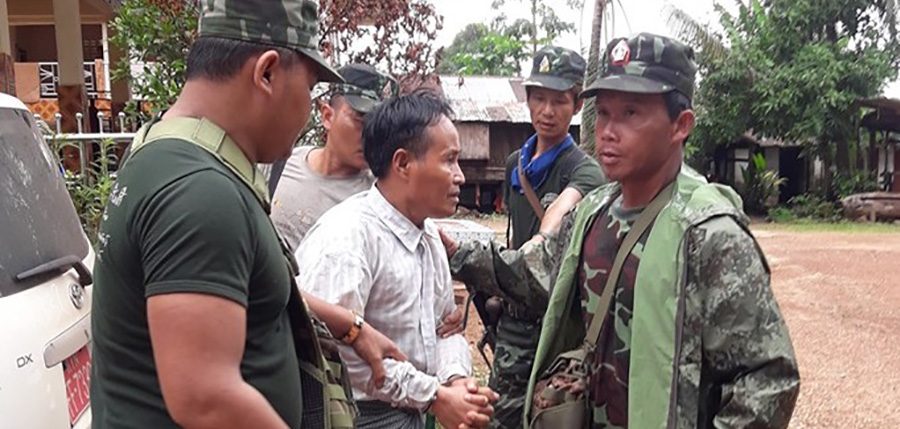
Outlook
Thus the case of Saw Kaung Myat looks like a case of overlapping administrative problem between the KNU and the government, particularly in the area of the land policy. In other words, it is a clash of ethnic desired traditional land rights and the government imposed ownership of all lands are owned by the state.
KNU land policy, which has been in place since 1974 was revised and published in 2015, recognizes ethnic customary and communal right to land, as well as the right to land for IDPs and refugees.
The government land use policy according to section 37 of the Constitution of the Republic of the Union of Myanmar provided that the Union is the ultimate owner of all lands in the Union, which contradicted with the KNU, including all the ethnic nationalities, traditional customary land policy. Moreover, land use permission granted for 30 years by the government to the users explicitly wipe out and do away with the ethnic land ownership.
In sum, unless comprehensive political settlement could be agreed upon between the government and the EAOs, including all Ethnic Political Parties (EPPs) and the stakeholders concerned, the land use policy argument will go on unabated, so do the other issues relating to the rights of ethnic self-determination.






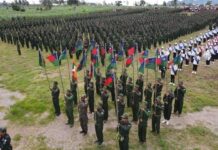
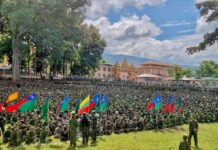
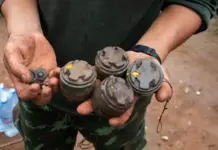
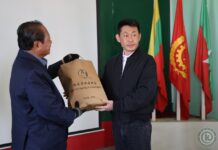

Leave a Comments